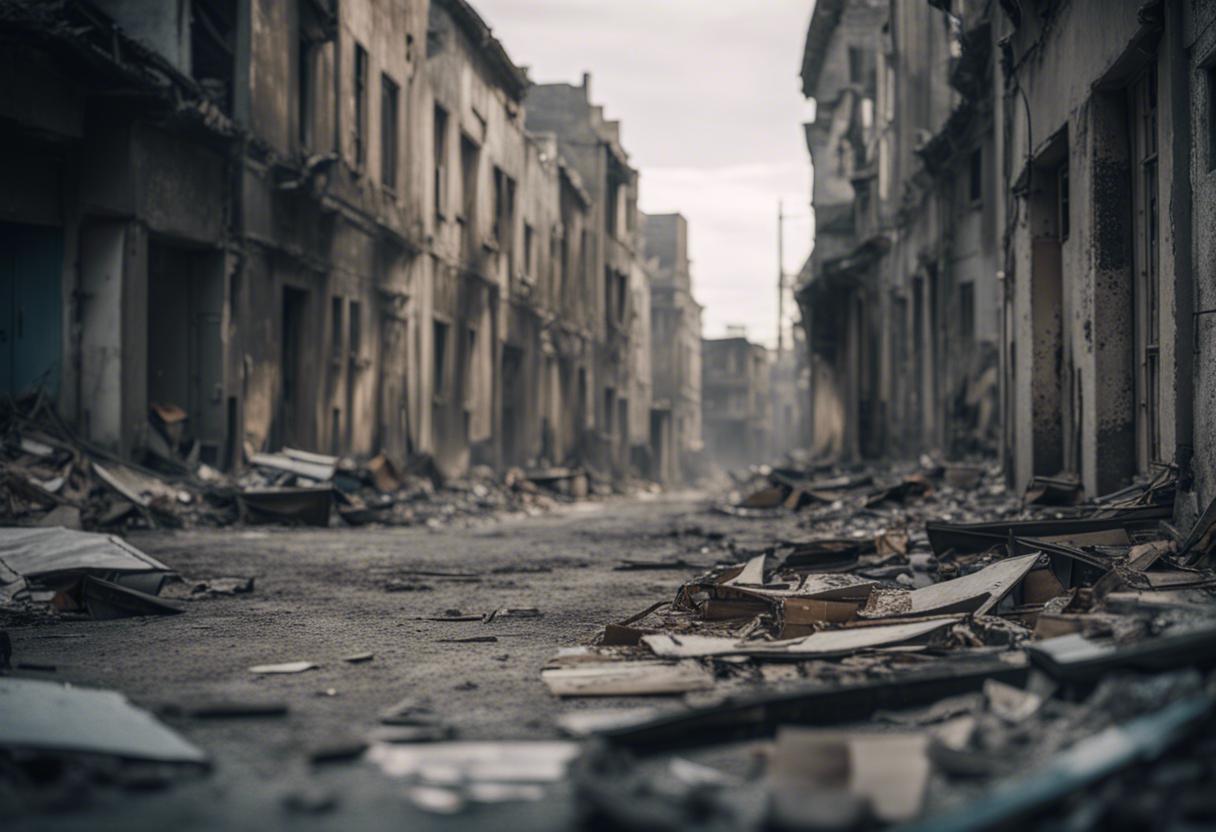In the aftermath of Israeli military withdrawal from two districts in Gaza City, the local civil defence body, operated by Hamas, reported the recovery of approximately 60 corpses during initial searches on Friday. The victims, mostly discovered under debris, included several people who still remain unaccounted for, the local authorities revealed.
Earlier this week, Gaza City inhabitants were urged by Israel to abandon their homes and relocate to the southern region, due to the escalating hostilities making the area highly hazardous.
Concurrently, Palestinian representatives assert that an Israeli offensive on a storehouse in Al Mawasi, within the southern belt of the Gaza Strip, led to the death of four international humanitarian workers. The storehouse held essential relief supplies.
According to the Israeli narrative, their commandos encountered and apprehended militants trying to escape from the Unrwa refugee agency office in Gaza City, identified as a Hamas command post with a stockpile of weaponry. The Israeli military articulates that during the conflict with militants within the premises, the troops uncovered an underground bomb production lab and weapon caches in an adjoining university structure.
While the Gaza civil defence department is still locating corpses, a local educational establishment turns into a battlefield, raising the death count at UN buildings.
Amidst intensified Israeli aggression in Gaza City, bodies remain trapped, and a ceasefire plea is being pushed forward.
The Gaza health ministry, run by Hamas, reports a death tally of over 38,300 Palestinians since the inception of the war on October 7th. In contrast, Israel estimates its death toll on the surprise Hamas assault on that day as 1,200, with 253 individuals taken captive, out of which 116 still remain in Gaza. The confirmed fatalities of hostages on the Israeli side total 42.
Samantha Power, the head of the US agency responsible for global American humanitarian relief, announced that she secured commitments from Israel to ensure the secure and rapid mobility of aid workers within the conflict-ridden coastal territory. She added that Israel is taking action to expedite the aid supply via its Ashdod port, just north of Gaza. This development could provide new alternatives for aid delivery to humanitarian organisations following Washington’s confirmation of the permanent closure of a storm-affected temporary maritime dock off the coast of Gaza.
Talks focusing on achieving a ceasefire in Gaza and facilitating the release of hostages, conducted in Egypt and Qatar this week, are reportedly showing signs of progress. US president, Joe Biden, expressed a hopeful tone in his remarks made on Friday. He stated that while there are still issues to address, the framework has been acknowledged by both Hamas and Israel. The President assured that his team is making headway and he is resolved to see this through.
However, a main bone of contention lies in the insistence by Hamas on written assurances from mediators that Israel won’t restart the war following the liberation of the initial group of Israeli hostages in Gaza. Mr Netanyahu, on the other hand, emphatically asserts that Israel holds the rights to recommence the conflict until its objectives are accomplished.
Hamas political bureau’s member, Izzat Al-Risheq, countered that Mr Netanyahu’s requirements are a recent development and expressed suspicion that the intent of the Israeli government is to undermine the pact.
A high-ranking official of Hamas, Husam Badran, declared the faction’s wish for an autonomous, technocratic administration, agreed upon by all Palestinian factions, to govern both the West Bank and Gaza. He underscored that governance of the Gaza Strip is a purely Palestinian internal matter hence Hamas will not concur to discuss this matter with external parties.
Contrary to a report from Reuters, both Israel and Egypt refuted claims on Friday that their negotiators are currently discussing an electronic monitoring system along the Gaza-Egypt border, which according to the report, would act as groundwork for an Israeli military retreat from the vicinity as a condition of a ceasefire accord.
To address the pressing shortage of troops, Israel’s cabinet made a decision on Friday to lengthen the compulsory military duty for men from 32 months to 36 months.

